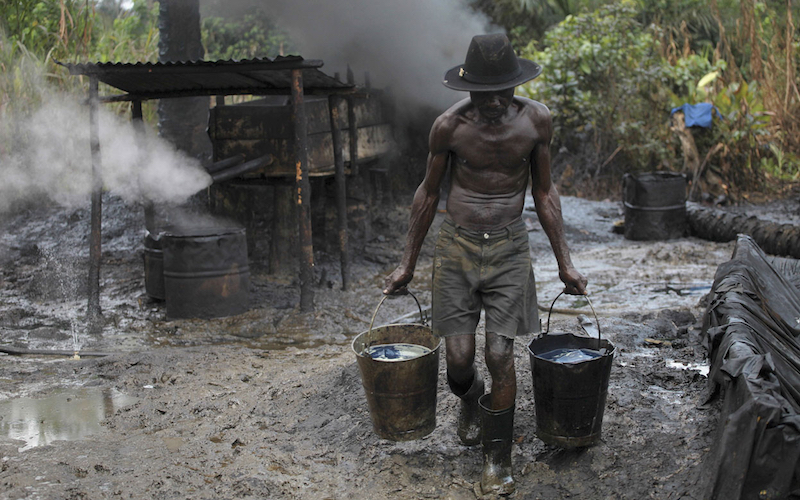A new report by New York-based magazine, Bloomberg has revealed the rising cases of oil theft in Nigeria, and the effects on the government’s finances and the private sector.
According to the report, millions of barrels of crude oil have been lost to theft between 2014 and 2019, as 100,000 barrels were stolen daily.
The act is considered to be a preferred alternative for former militants, who prefer the economic gains of oil theft, to mindless vandalization of oil facilities.
“On one level, theft is probably a more palatable option for Nigeria and the companies operating there than attacks by militants,” the report read.
“About 100,000 barrels a day are being taken out of pipelines, whereas militancy halted at least eight times that amount at one stage three years ago.”
READ ALSO: Herdsmen, Boko Haram, others kill 25,794 Nigerians during Buhari’s first term – Report
Commenting on the trend, Ledum Mitee, a lawyer and minority rights activist told Bloomberg that, “They believe the oil is theirs and the government is the thief. “People now realize that instead of just cutting pipelines to spite the government, they can make money out of it,” Mitee was quoted as saying.
The report adds that the thieves operate illegal refineries in parts of the Nigeria Delta where stolen crude are kept in hundreds of cauldrons, each of which can hold as much as 150 barrels of oil.
“Yields from a single cauldron will include 7,500 liters of diesel, 2,000 liters of gasoline and 500 liters of kerosene a day. It costs about 4 million naira ($11,100) to construct a boiling pot,” the report said.
Aside from the negative environmental impact and fatal fire incidents resulting from incessant oil theft, the federal government and international oil companies have lost production volumes overtime that have translated to huge financial losses.
Companies like Shell Petroleum Development Company (SPDC), Aiteo Eastern Exploration & Production Company Limited and Chevron Nigeria Limited (CNL) have been affected, leading to several force majeures on the Trans Forcados Pipeline and more recently the Nembe Creek Trunk Line.

